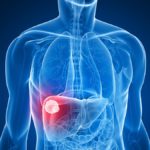By David Blyweiss, M.D.
Millions of Americans take antidepressant drugs. Especially selective serotonin reuptake inhibitors (SSRIs) like Prozac and Zoloft.
These drugs are huge moneymakers for pharmaceutical companies, bringing in billions every year. And they aren’t just used to treat depression. Doctors also prescribe them for anxiety, PMS, and even pain relief. And that’s despite a long list of side effects including headache, dizziness, sexual problems and even suicide.
Now you can add another reason to think twice before agreeing to take an antidepressant. A new report links these drugs to thicker arteries. And that can boost your risk of heart attack and stroke.
This groundbreaking study, conducted at Emory University School of Medicine, looked at 59 sets of middle-aged, male twins who had served in the military during the Vietnam War. One twin in each set had a history of antidepressant use while the other did not. All the men had the thickness of their carotid artery (the main artery in the neck) measured by ultrasound. The results showed the lining of the carotid artery in the twins taking the medication was considerably thicker than their drug-free brothers. And this was even if hadn’t ever suffered a stroke or heart attack.1
How could antidepressants have this effect on blood vessels?
The Emory scientists think it might be caused by changes in serotonin. That’s a neurotransmitter that plays a part in the regulation of mood, sleep, learning, and the constriction of blood vessels. In fact, serotonin can either constrict or relax your blood vessels, depending on whether they are damaged or not.
So can you ease depression and still protect your arteries?
The World's Quickest Solution for Ending Prostate and Urinary Misery
This has recently been revealed to be one of the only real breakthroughs in prostate health.
The seeds of a strange fruit (sometimes called "Chinese Apples") hold powerful phytonutrients that are a revolution in prostate health.
In fact, UCLA and Veterans Administration research have now proved this to be true.
Not only that, but it may be the worlds quickest solution for ending prostate misery.
Simply stated, these phytonutrients represent a huge step beyond beta sitosterol, saw palmetto, and other phytosterols alone.
Simply click HERE if you want to have fast prostate relief...restful, uninterrupted sleep...no more constant "urges to go"...enhanced virility...and optimal prostate support for life.
Yes, and it starts with diet and exercise. One of my favorite do-it-yourself treatments for depression is exercise. Now, it’s not a magic button. But increasing physical activity is a positive and active strategy to help manage depression and anxiety.
Even 10 to 15 minutes of exercise several times a day can improve your mood. And studies show 30 minutes of exercise three to five days a week can significantly improve symptoms of depression.2
Diet is just as important as exercise. A recent study shows eating a whole foods diet instead of the Standard American Diet (SAD) can slash your risk of depression by 30%.3 Build your diet around fresh fruits and vegetables, whole grains and plenty of omega-3 rich fish.
Supplements can also help. One with a lot of research behind it is a molecule naturally found in the body called S-adenosylmethionine (SAMe). SAMe has a long history of treating depression by boosting dopamine levels. It’s so effective a recent study found SAMe even helps ease depression in people who don’t respond to SSRIs.4 Since it has few side effects and acts quickly—often within a week—I recommend taking 1,600 mg daily.
St. John’s wort is another one of my favorite supplements for patients suffering from mild to moderate depression. I’ve come across several double-blind studies comparing St. John’s wort to antidepressant drugs. These studies show St. John’s wort is more effective than the SSRIs and has fewer side effects.5 To help ease the symptoms of mild to moderate depression, try taking 600 to 1,200 mg daily of a standardized herbal extract containing of 0.3% hypericin.
If you’re feeling anxious and depressed, these natural remedies can be an effective way to feel better. Without all the mental, sexual or cardiovascular problems all too common with antidepressants.
References:
- Antidepressants Linked to Thicker Arteries. Press release: The Robert W. Woodruff Health Sciences Center of Emory University. April 4, 2011. Available at http://shared.web.emory.edu/whsc/news/releases/2011/04/antidepressants-linked-to-thicker-arteries.html
- Oeland AM. Impact of exercise on patients with depression and anxiety. Nordic Journal of Psychiatry. 2010;64:210-217.
- Jacka FN. Association of Western and traditional diets with depression and anxiety in women. American Journal of Psychiatry. 2010;167:305-311.
- Papakostas GI. S-Adenosyl Methionine (SAMe) Augmentation of Serotonin Reuptake Inhibitors for Antidepressant Nonresponders With Major Depressive Disorder: A Double-Blind, Randomized Clinical Trial. American Journal of Psychiatry. 2010; 167:942-948.
- Singer A. Duration ofresponse after treatment of mild to moderate depression with Hypericum extract
STW 3-VI, citalopram and placebo. Phytomedicine. 2011 Apr 20. [Epub ahead of print]






